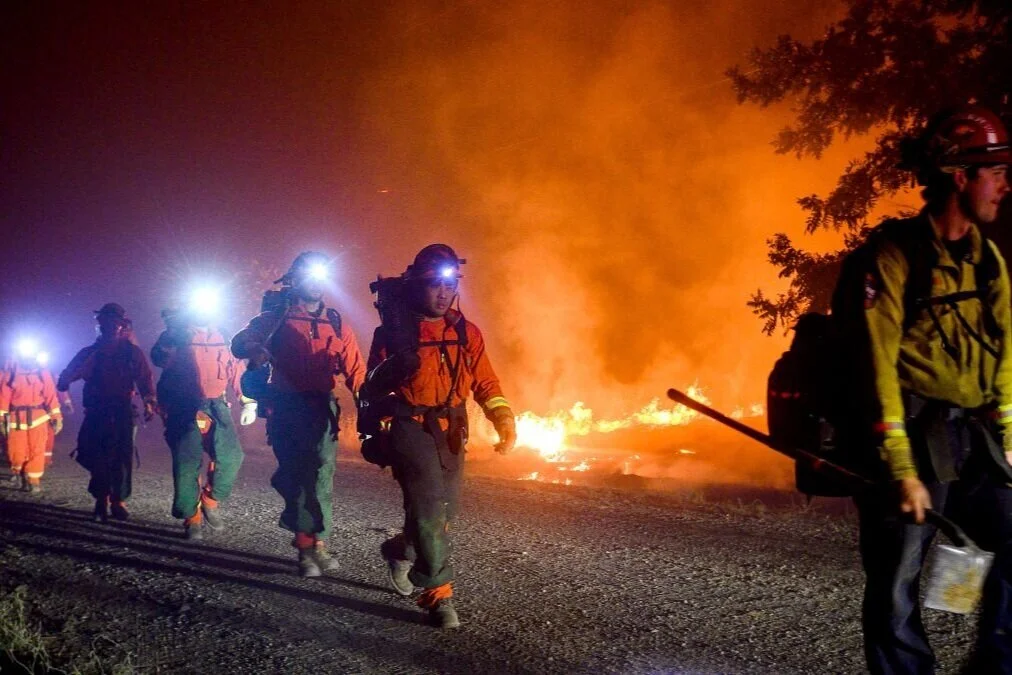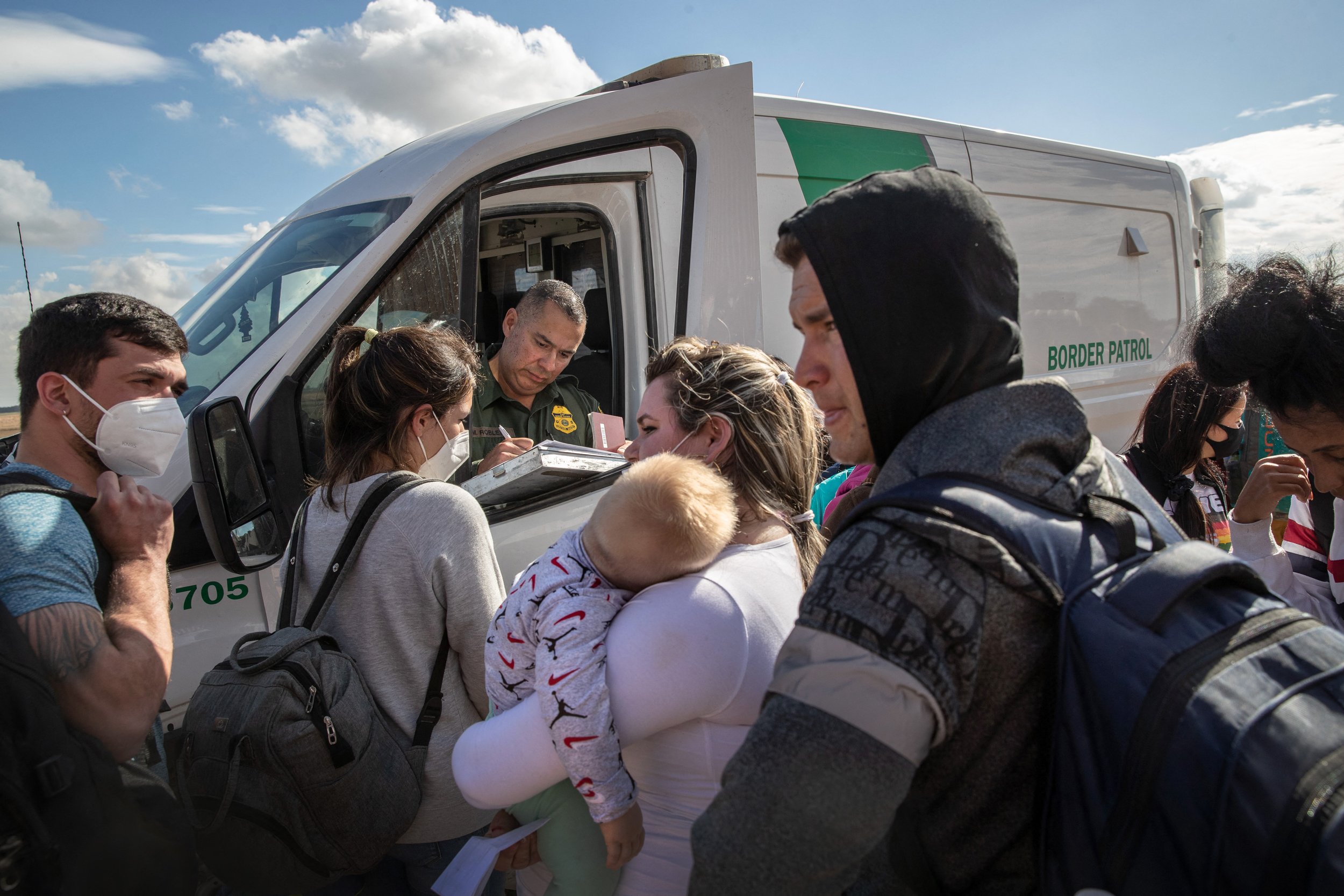Here’s What it’s Like to be Incarcerated and Fighting Wildfires
Francis Lopez, 28, was incarcerated for over two years in California. He served seven months in San Quentin, then was moved around, eventually ending up in a fire camp, where incarcerated people live while fighting California’s wildfires. Between 2015 and 2017, he fought wildfires in northern California and says he was paid a dollar an hour. It was an experience that left him feeling exploited, he said – but he felt even worse when he realized his ex-convict status barred him from doing the same job for a real salary.
As California’s wildfires continue to rage across the state, Lopez spoke to AJ+ producer Hangda Zhang (@hangdazhang) about what his experience was like.
“Your heart’s beating super fast and you start to smell smoke”
Lopez’s first mission was a chaotic plunge into the unknown.
“You’ve got guys throwing up because they’re carsick – they haven't been in a car in years. You have all your gear on. It's hot, and your heart's just beating super fast because you have no idea what's going to happen,” he said. “You start to smell smoke in the air. You can kind of just get a sense of like, OK, we're going into a really dangerous situation … we all come out and this fire is everywhere. There's smoke in the air. Helicopters are flying by dropping water and retardant over the fire. You have radio communication, people yelling, sirens going off, cars driving by. It's a whole crazy scene.”
Coming from a very controlled environment like prison, it’s a lot to take in, Lopez said. “You’re looking around like, whoa, what in the world is going on?”
“I just got sent here”
Lopez said that for some inmates, fighting fires was not a choice. “A lot of people think that inmates all volunteered to be sent to the fire camps. There are some inmates that do volunteer to go there, but there's a lot that just get sent there. And because you're sent, you're like, all right, might as well do it. I'm already here. And that was kind of the case. I just got sent here,” he said. (The state of California, for its part, maintains that all incarcerated firefighters are volunteers.) Lopez said the training program was only a month long, and then they were put on the frontlines.
“Some things that a lot of people don't know about the inmate firefighters is that we take the missions that the machines can't get to and that the California firefighters don't want to go to,” Lopez said. “There are times we almost die.”
“We’re not compensated for the work we do”
When Lopez realized the pay scale difference between inmates and other firefighters, he was shocked.
“You get to a point where you're like, wow, like I could seriously die out here and I'm getting paid a dollar an hour to do something that [professional firefighters] get paid $60-$70,000 per fire season to complete. We're going without the insurance, we're going without the proper training, going with the most basic of gear and essential requirements,” he said “We’re not compensated for the work that we do. They send us to the most dangerous missions on these fires and I know why they do it: because if we die, nobody cares. If we die, they don't have to pay the insurance.”
He added that the media coverage also was unequal – something that became clearer as the fires went on. “It just opened my mind up to like, wow, like we're really just being used because we're saving people's lives. We're saving neighborhoods. We're really heroes. But every time we do something heroic, we don't get the credit for it. Every time the news shows firefighters, they never show us. They always show the other guys.”
“It just put a bitter taste in my mouth”
Despite their skill and experience, felons who fight fires while incarcerated were barred by their felony convictions from becoming civilian professional firefighters. “You deem us not worthy because we have a felony, but yet you exploited us to work almost for free because we do have that felony. Why can’t we have an opportunity for employment when we come out? It just put a bitter taste in my mouth,” he said. Earlier this month, new legislation passed that allows imprisoned firefighters to petition to have their records expunged, although the law includes exceptions.
“If you look at the statistics, 66% of individuals that are released from a California state prison go back within three years. And one of the main contributing factors why they do all go back is because there's lack of employment, lack of resources,” Lopez says.
“They’re clapping for us, and then the cuffs are back on”
Lopez said that the dual nature of being both a hero and an inmate played out in challenging and strange ways.
“It's such a crazy phenomenon because, on one side of things, you're locked up, you're a prisoner. But when you go to these fires, there are signs that say, ‘Thank you, inmates, for fighting our fire. Thank you for saving our homes.’ They're clapping for us. You know, we're getting out, we got mud all over our face. We looked like we just came back from a crazy mission. And it's like, then you go back, our cuffs on. You gotta wash your face up and you're monitored. And you know, you go back to the cells and it's like … you get what I'm saying?”
Lopez added that a lot of people might not have empathy for his position since he committed a crime. But he doesn’t think that’s an effective way of looking at it.
“My rebuttal to that would be when you grow up in the ghetto, for lack of better terms, life is hard,” he said. “Why does my record follow me for the rest of my life, especially when I want to change my life for the better? It's almost like the slave stamp. I have to wear that for the rest of my life. And I don't think that’s fair.”
Produced By Hangda Zhang





